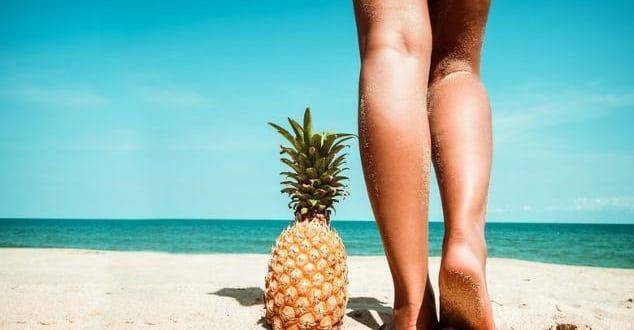
Many patients are unable to experience the carefree summer, a time of rest and relaxation for most of us, as they suffer from the aggravation of the heat in their veins.
In these patients, symptoms such as pain, inability to stand, heartburn, swelling, itching, cramps and feeling of restless legs during their night sleep are very common. These patients suffer from venous insufficiency, a disease that unfortunately worsens because this is its natural progression, but also because of the heat, which causes the veins to dilate further as well as the inability of their valves to function properly.
One in two Greeks is sick
Venous insufficiency is a common condition in our country affecting approximately 35-40% of women and 20% of men. After the age of 60 the rates, according to some studies, increase to 65-70%, based on ultrasound data. This problem can be easily diagnosed by a specialist vascular surgeon, and with the patient mainly in an upright position during the ultrasound (triplex).
What relieves varicose veins?
Conservatively, aerobic activity is needed, as many hours as possible per week, such as cycling, swimming, walking, dancing, etc., as well as the use of phlebotonic preparations and creams that enhance venous tone, increase blood return to the heart, reduce swelling and improve the contractility of veins and capillaries. Escine, hesperidin, horse chestnut and red vine extracts are among the main substances mainly of herbal origin that we use in venous insufficiency. But when varicose veins appear, i.e. swollen veins in the legs, then the situation gets worse and we go from stage 2 to stage 3, so invasive treatment is needed.
The "golden solution" in surgical rehabilitation
The gold standard of surgical restoration, in recent years, is the intraluminal laser, which combined with the microsurgical technique provides an effective solution to the problem, surpassing all other older operations.
Its advantages:
1. It is done with continuous ultrasound guidance, which is a strong advantage.
2. The 1470 nm laser is a bloodless and more painless method than ever and is also used in very large veins with a diameter of more than 1.6 cm, while in smaller ones it is possible to use RF radio frequencies.
3. The patient is mobilized 30 minutes after the operation, which is done under local anesthesia and light intoxication.
4. Post-operative care is minimal and it is not mandatory to use elastic stockings as before for 6-7 months but only for 2 weeks.
5. The patient quickly returns to his daily activities, in 3-4 days (depending, of course, on the severity of the deficiency).
Special precautions for summer
It should be noted that in the summer months there are more thrombosis of the veins mainly due to the dehydration that is created inside them and when the condition of the deficiency is neglected, eczema, chronic dermatitis, erysipelas, gradual erosion of the skin occurs, resulting in a weak ulcer that is difficult to heal.
Also note the importance of elastic stockings or graduated compression stockings for both the prevention and treatment of venous problems.
Attention and regular check-ups are therefore needed to prevent the bad progression of the condition and its insidious complications.
Charalambos Ilias, Vascular Surgeon www.iliasxar.gr
Article https://www.onmed.gr
